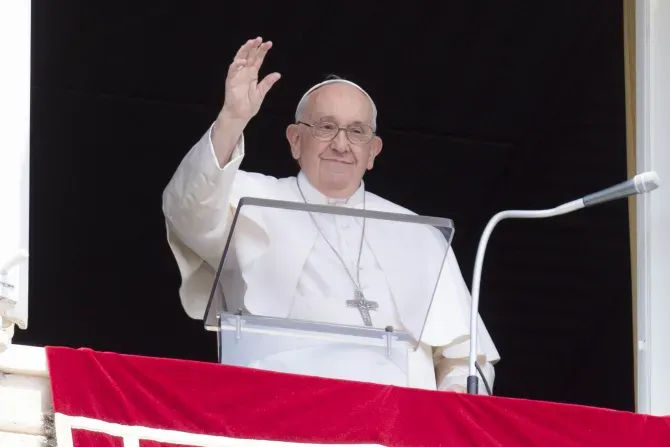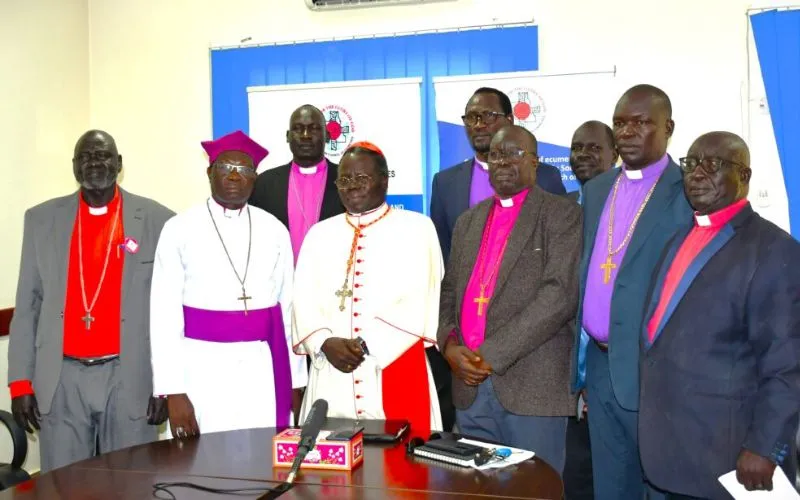After his brief message, he prayed the Regina Caeli, a Latin antiphon honoring the Virgin Mary which is usually prayed during the Easter Season.
Francis said making an examination of conscience is a way of “rereading my day, opening the heart, bringing to him people, choices, fears, falls, hopes, and all of the things that took place; to learn gradually to look at things with different eyes, with his eyes and not only our own.”
A nightly examination of conscience is also sometimes known as a daily examen, a part of the spirituality developed by St. Ignatius of Loyola.
The pope spoke about the spiritual practice in the context of the Gospel passage for the Third Sunday of Easter, which recounts Jesus’ appearance to two of his disciples while they were walking from Jerusalem to the village of Emmaus.
 Pope Francis addressed around 30,000 people during the Regina Caeli in St. Peter's Square on April 23, 2023. Vatican Media
Pope Francis addressed around 30,000 people during the Regina Caeli in St. Peter's Square on April 23, 2023. Vatican Media
At first, the disciples did not recognize the resurrected Lord, who asked them to explain what had happened to make them so sad.
Jesus, the pope said, “wants to listen to their account. Then, while they are walking, he helps them reinterpret the facts in a different way, in the light of prophecy, in the light of the Word of God.”
“We too, like those disciples, faced with what happens to us, can find ourselves lost in the face of these events, alone and uncertain, with many questions and worries, disappointments, many things,” he explained.
“Today’s Gospel invites us to tell Jesus everything,” he continued, “sincerely, without worrying about bothering him — he listens — without fear of saying something wrong, without being ashamed of our struggle to understand.”
Pope Francis explained that the Lord is happy when we open ourselves to him, because he wants to accompany us, and to make our hearts burn within us, like happened with the disciples on the road to Emmaus.
 Pope Francis addressed around 30,000 people during the Regina Caeli in St. Peter's Square on April 23, 2023. Vatican Media
Pope Francis addressed around 30,000 people during the Regina Caeli in St. Peter's Square on April 23, 2023. Vatican Media



 Pope Francis addressed around 30,000 people during the Regina Caeli in St. Peter's Square on April 23, 2023. Vatican Media
Pope Francis addressed around 30,000 people during the Regina Caeli in St. Peter's Square on April 23, 2023. Vatican Media



